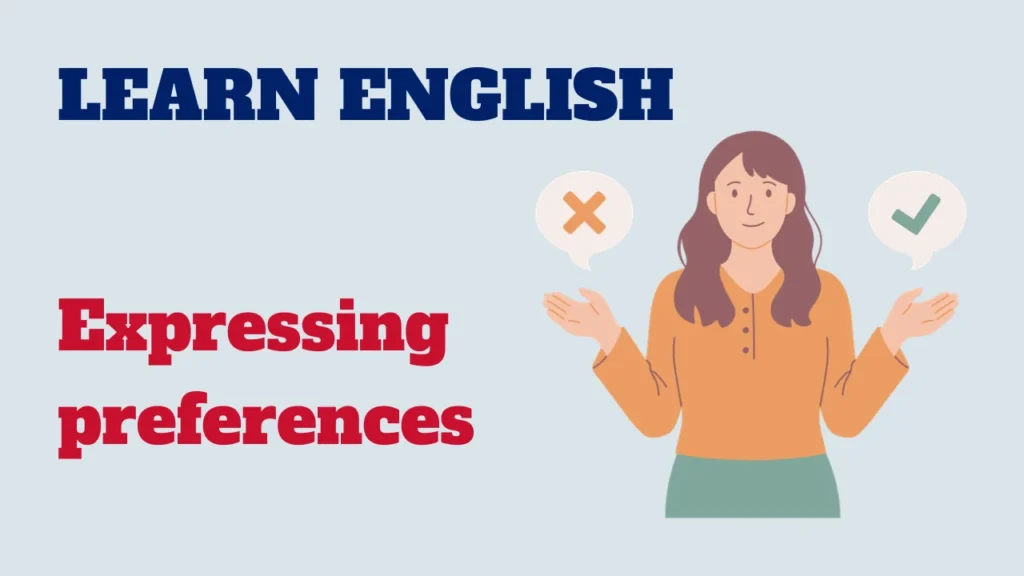Learning a new language involves the essential skill of expressing your preferences and personal tastes.

In this lesson, we’ll explore various ways to articulate what you prefer in English, using appropriate words and expressions to convey your opinions.
Expressing your preferences
I like – Conveying appreciation
“I like” is one of the simplest expressions to communicate a preference or personal taste.
Example:
I like sandy beaches.
I prefer – Indicating a preference
“I prefer” allows you to indicate that you have a preference for something over another option.
Example:
I prefer coffee to tea.
I love – Expressing passionate love
“I love” indicates that you have a passionate love for something.
Example:
I love classical music.
It’s my favorite – Signaling a favorite choice
“It’s my favorite” indicates that you have a favorite choice among several options.
Example:
Mountains are my favorite.
I’m a fan of – Showing admiration
“I’m a fan of” is used to express strong admiration for something or someone.
Example:
I’m a fan of this music group.
Expressing your dislikes
I don’t like – Expressing non-appreciation
“I don’t like” is a simple expression to indicate that you don’t appreciate something.
Example:
I don’t like rainy days.
I hate – Expressing strong aversion
“I hate” indicates that you have a strong aversion to something.
Example:
I hate spiders.
I don’t really like – Showing slight preference
“I don’t really like” means you have a slight preference for something else.
Example:
I don’t really like horror movies.
It’s not my thing – Indicating disinterest
“It’s not my thing” shows that you’re not interested in something.
Example:
Extreme sports? it’s not my thing.
I’m not really a fan of – Indicating a moderate preference
“I’m not really a fan of” expresses that you’re not a big admirer of something.
Example:
I’m not really a fan of spicy food.
Expressing your preferences in English is crucial for effective communication and sharing your tastes and opinions. Choose the response that best fits your feelings and practice regularly to feel more comfortable expressing your preferences in English. Happy practicing!



